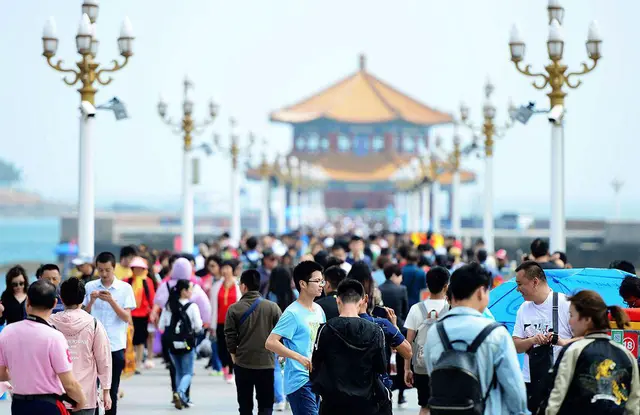China is making tremendous progress on aged care but its elderly are facing new challenges including isolation and loneliness, Toby Porter, CEO of HelpAge International, said in an interview with Xinhua here Wednesday.
"I think that what's going on in China is tremendous, in terms of what the government is doing -- the creation of the National Committee on Ageing, the legislation in terms of pension and now health insurance -- but there are big challenges as well," Porter said.
"There are now 200 million aged 60 and over in China -- obviously the largest older population in the world -- and the projection is that will continue to increase," he said.
Porter pointed out that by 2030, 25.3 percent of China's population will be aged 60 years or older.
But Porter said that the rapidly ageing population is not the only demographic trend affecting older people in China -- rural-to-urban migration has also increased the distance between older people and their families, contributing to loneliness, isolation and depression.
"Population ageing isn't the only important demographic trend going on," he said. "There is also an obviously enormous rural-to-urban migration process that's happened over the same period of time."
"As a consequence, there are large numbers of older people who are living hundreds, even thousands, of kilometers from their families," Porter said.
The increasing geographical distance between Chinese families has contributed to loneliness, something that Porter said the Chinese government has attempted to address through legislation aimed at encouraging children to visit their parents at least once a year.
Meanwhile, he said it was important for people to realize that if they were going to live beyond 60 they should do their best to prepare so that as many of those years as possible will be healthy and active.
"If you want a healthy older life, the best chance that you can give yourself is to live your whole life in a healthy way, reduce or preferably eliminate tobacco use, be very mindful of the amount of sugars and processed foods that you eat," he said, adding that the increase in diabetes worldwide is of particular concern.
Porter also said it is important for older people to get their blood pressure checked to see if they are at risk of hypertension and strokes. For older people who continue to work beyond 60, including farmers, he said health services need to provide help with problems such as sore backs and joint pain.
At the same time, Porter also emphasized the importance of including older persons in the United Nations' new Sustainable Development Goals (SDGs)-- a set of 17 economic, social and environmental goals expected to be adopted by world leaders later in September.
He said that longer lives should be seen as a triumph of development but that countries should begin to prepare for ageing populations as soon as possible.
"Older people have been invisible, they have suffered discrimination and marginalization in many of these processes and therefore there does need to be a special effort to bring them into the mainstream," he said.
Porter said that many of the best models for looking after an older population were likely to come out of Asia, including China.
"Countries like China have an opportunity and they are doing it in a different way," he said. "I think it's very likely that some of the best models and policies will come out of Asia."
Founded in 1983, HelpAge International helps older people claim their rights, challenge discrimination and overcome poverty, so that they can lead dignified, secure, active and healthy lives.
 简体中文
简体中文

